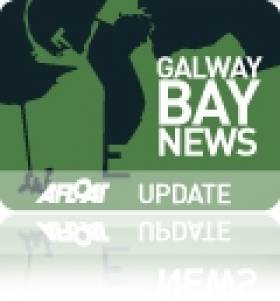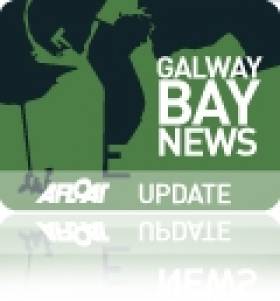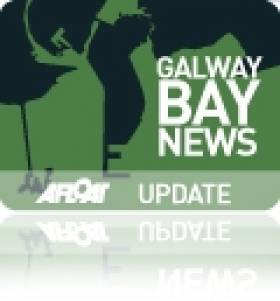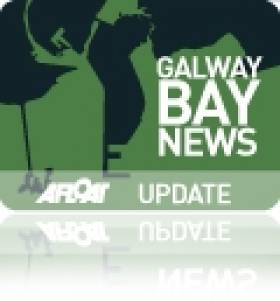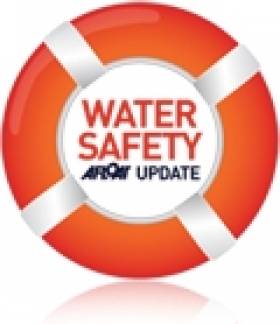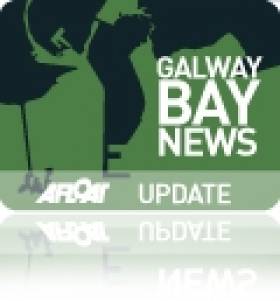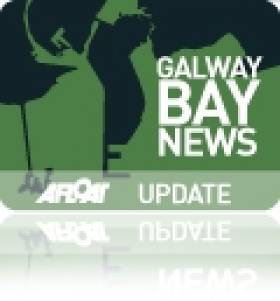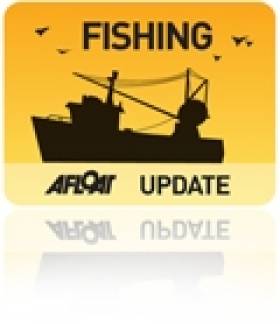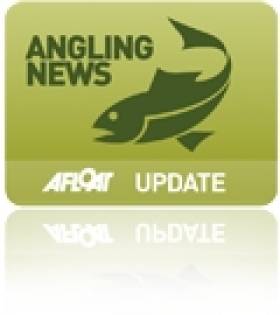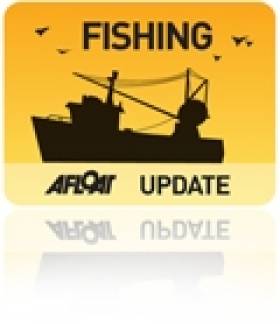Displaying items by tag: BIM
Squabbling State Agencies Skip Fish Farm Debate
#FishFarm - The expected debate between two State agencies at loggerheads over the proposed Galway Bay deep-sea fish farm failed to take place as planned over the weekend as neither body sent a representative.
Bord Iascaigh Mhara (BIM) and Inland Fisheries Ireland (IFI) had been expected to debate the planned 500-hectare organic salmon farm off the Aran Islands during the Galway Food Festival over the Easter weekend.
Organisers were informed at the last minute that neither agency would be involved in the public event, with BIM telling The Irish Times it did not feel it would be appropriate to discuss the matter in an open forum when negotiations were ongoing.
Both sides have differed over the potential impact on wild salmon populations in the area, with IFI citing research that damns the negative consequences of sea lice infestations in fish farms.
Despite their absence, the debate went ahead as scheduled, with local businesses on both sides of the argument expressing their views.
The Irish Times has more on the story HERE.
Councillor's Concern Over Galway Bay Fish Farm
#FishFarm - A Galway county councillor has declared his reservations over the proposed deep-water organic salmon farm off the Aran Islands, as Galway Bay FM reports.
Cllr Jim Cuddy said at this week's meeting of Galway County Council that concerns had been expressed to him by angling interests over plans for the 500-hectare aquaculture scheme in Galway Bay and its potential effects on wild salmon stocks.
His motion, which was seconded by Cllr Thomás O'Curraoin, comes in the same week as 13 seafood companies based in the City of the Tribes showed their support for the fish farm plans in letters of support to Bord Iascaigh Mhara (BIM).
As reported earlier this week on Afloat.ie, two West Galway TDs were at loggerheads over the proposals, the planning application for which is still under consideration.
TDs At Odds Over Galway Bay Fish Farm Plans
#FishFarm - Galway Bay FM reports that two West Galway TDs are at loggerheads over the proposed deep-water organic salmon farm for Galway Bay.
Eámon Ó Cuív of Fianna Fáil says Marine Minister Simon Coveney is showing inappropriate support for the aquaculture scheme proposed by Bord Iascaigh Mhara.
In response, Fine Gael deputy Seán Kyne reiterated the minister's own Dáil statement earlier this month that procedure would be followed 'to the letter' and that he could not take sides on the matter.
According to Galway Bay FM, the application for the 500-hectare fish farm, to be located off the Aran Islands, is still under consideration.
If greenlit, the facility would be the largest of its kind in Europe and would double the State's production rate of very profitable organic salmon.
But the plans have faced opposition from Inland Fisheries Ireland and local anglers, many of whom joined a 2,000-strong protest against the project in Galway city centre on 2 March.
#FishFarm - The Government 'will follow procedure to the letter' regarding the proposed €100-million deep sea fish farm for Galway Bay.
That was the message from Marine Minister Simon Coveney in the Dáil last week, as reported by Galway Bay FM, after it emerged that more than 400 submissions on plans for the State's largest ever aquaculture scheme were made to the his department.
The Dáil discussions came just days after a public protest against the fish farm plans in Galway - and some months after the National Inland Fisheries Forum lambasted as "flawed" the consent process regarding the proposed development.
Some 2,000 people amassed in opposition to the 500-hectare organic salmon farm off the Aran Islands proposed by Bord Iascaigh Mhara (BIM), which if it gets the go-ahead would be the largest facility of its type in Europe and would double the State's production rate of organic salmon - one of Ireland's most profitable export foodstuffs.
BIM has previously accused environmental campaigners of being "deliberately alarmist" about the fish farm, despite concerns raised my Inland Fisheries Ireland over the potential impact of sea lice infestations on wild salmon in the bay.
Meanwhile, in a letter to the Galway Advertiser last week, Attymon resident Gabe Cronolly criticises a BIM leaflet informing the public of its proposals.
"The leaflet states that sea lice can only be held responsible for one per cent of salmon losses at sea, but fail to report that 39 per cent of mortalities in fish farms are attributed to sea lice," he writes.
New Sea Safety Training Guide for Ireland's Fishermen
#SafetyAtSea - Bord Iascaigh Mhara (BIM) highlighted the importance of safety at sea in the Irish fishing industry at this year’s Irish Skipper Expo in Galway last weekend.
Ireland's sea fisheries board also marked the occasion with the launch of a new training guide on personal survival techniques, covering key topics such as personal flotation devices, abandoning ship, helicopter rescue and hypothermia.
The guide, approved by the National Adult Literacy Association (NALA), was developed by BIM in consultation with Dr Jason van der Velde of Medico Cork at Cork University Hospital, the Department of Transport and the Irish Coast Guard.
Over the last five years, 19 deaths at sea related to the commercial fishing and aquaculture sector have been recorded. Statistics for 2012 record seven deaths, and an increase year on year for the previous four years. And with two deaths already recorded this year, safety is a serious issue that must be addressed in the wider seafood sector.
BIM chief executive Jason Whooley emphasised the importance of completing life saving safety training. "Fishing is a dangerous occupation and the sector has already suffered from too many tragic accidents at sea in recent years," he said.
"With new developments in safety on board and new technology coming on stream, we have more tools at our disposal to increase survival rates from accidents at sea but in order for these measures to be effective, all crew require the necessary training.
"It is therefore imperative that fishermen and aquaculture personnel, who have not already done so, complete their safety training to help prevent any further lives lost at sea."
BIM runs a variety of training courses for industry, including the mandatory Basic Safety Course, in its dedicated training colleges under the National Fisheries College Ireland (NFCI) umbrella in Greencastle, Co Donegal and Castletownbere, Co Cork, as well as on board its coastal training units that bring training directly to ports and coastal locations around Ireland.
Thousands Attend Fish Farm Protest in Galway
#FishFarm - As many as 2,000 people attended the protest in Galway against the proposed deep sea fish farm off the Aran Islands at the weekend.
As previously reported on Afloat.ie, the demonstration was organised by Galway Bay Against Salmon Cages on Saturday 2 March in opposition to the 500-hectare organic salmon farm proposed by Bord Iascaigh Mhara (BIM).
Among the speakers on the day, as The Irish Times reports, was Icelandic salmon conservationist Orri Vigfusson, who claimed the fish farm could interfere with the migration of salmon smolts from both Ireland and the rest of Europe.
GBASC vice-chairman Tommy Casserly also spoke, referring to the fish farm project as "a toxic cloud containing seven million caged salmon with all those faeces and chemicals and lice, between the Atlantic and 15,000 wild salmon which come through these waters".
Later in the day a delegation attempted to hand a letter of protest to BIM staff attending the Skipper Expo in the city, but said it was refused.
If the Galway Bay fish farm project gets the go-ahead, it would be the largest aquaculture facility of its type in Europe and would double the State's production rate of organic salmon.
The Irish Times has more on the story HERE.
Protest in Galway Over Fish Farm Plans This Weekend
#Fishfarm - Galway Bay FM reports that a major protest is set to take place in Galway this weekend against the proposed deep sea fish farm off the Aran Islands.
Galway Bay Against Salmon Cages is organising the demonstration from Eyre Square on Saturday 2 March at noon in opposition to the 500-hectare organic salmon farm proposed by Bord Iascaigh Mhara (BIM).
The facility, to be located off Inis Oírr in Galway Bay, would be the largest of its kind in Europe and would double the State's production rate of organic salmon, cited by BIM as Ireland's leading organic food export.
However, the scheme has been facing strong opposition from fisheries groups and local anglers citing the potential environmental impact on wild salmon numbers and the threat to tourism in the area.
Inland Fisheries Ireland is among those bodies that have expressed concern over the fish farm plans, citing research on the effect of sea lice emanating from aquaculture facilities on the mortality rate of wild Atlantic salmon.
BIM responded to news of the protest by stating such action may be unnecessary due to the appeal mechanism available in the State's decision process.
Morning Ireland Reports On Galway Bay Fish Farm Debate
#FishFarm - RTÉ Radio 1's Morning Ireland reports on last night's public meeting in Galway on the proposed deep sea fish farm in Galway Bay.
As previously reported on Afloat.ie, the 500-hectare organic salmon farm proposed by Bord Iascaigh Mhara (BIM) would be located off Inis Oírr in the Aran Islands, and would be the largest of its kind in Europe, set to double the State's production rate of organic salmon.
BIM's aquaculture development manager Donal McGuire moved to reassure concerned locals that the agency was "not about to damage [its] reputation" by "doing something foolish or doing something that will cause serious environmental damage".
McGuire added that organic salmon is Ireland's leading organic food export but is in "very very short supply", and that business would be lost to producers in Scotland and Norway.
However, the scheme has faced strong opposition from fisheries groups and local anglers citing the potential environmental impact on wild salmon numbers and the threat to tourism in the area.
At last night's meeting, RTE's western correspondent Pat McGrath says just two of the more than 100 in attendance spoke in support of the fish farm plans.
Another public meeting on the proposals is scheduled for tonight in Rossaveal.
BIM is expected to hold a public tender process for the proposed salmon farm project pending approval by Marine Minister Simon Coveney.
IFI Repeats Concerns Over Aran Islands Fish Farm
#Angling - Anglers on the River Feale in Kerry and Limerick have been assured by Inland Fisheries Ireland (IFI) that it supports their concerns over the proposed deep-sea fish farm in Galway Bay, as the Limerick Leader reports.
Local anglers are among those throughout the region who have rallied in opposition to plans for the Aran Islands fish farm project, over fears that it would lead to “an explosion” in parasitic sea lice which would prey on wild inland salmon from Irish rivers feeding in the North Atlantic.
IFI reiterated its statement issued last month in which its board said it does not believe "that the corpus of peer reviewed international scientific literature which recognises the negative impacts of sea lice on salmonids have been adequately dealt with" in the Environmental Impact Statement prepared by Bord Iascaigh Mhara (BIM) as part of the public consultation process.
A spokesperson for IFI told the Limerick Leader that the authority has "major concerns about the location and scale [of the farm], as well as its potential impact on sea life. [IFI] is not supporting it in its current form.”
Earlier this month the National Inland Fisheries Forum also criticised as "flawed" the consent process regarding the 15,000-tonne organic salmon farm planned off Inis Oirr, which would be the largest of its kind in Europe.
If approved, the operation could more than double Ireland's current production rate of farmed salmon.
The Limerick Leader has much more on the story HERE.
BIM to Hold Public Tender for Galway Bay Fish Farm
#FISHFARM - Bord Iascaigh Mhara (BIM) is set to hold a public tender process for the development of the proposed deep sea fish farm in Galway Bay, according to The Irish Times.
Financiers around the world have expressed interest in the 500-hectare organic salmon farm to be located off Inis Oirr in the Aran Islands, though BIM said it was not at liberty to disclose who they are.
As previously reported on Afloat.ie, the proposed fish farm would be the largest of its kind in Europe, set to double the State's production of organic salmon.
BIM says it is already receiving inquiries for jobs from emigrants wishing to return home.
However the scheme has faced opposition from Inland Fisheries Ireland (IFI) and local anglers, who cite the potential threat to wild salmon numbers in the area.
IFI recently issued a statement regarding its submission on the project's Environmental Impact Statement, raising concerns about the scale of the development and the impact of sea lice - infestations of which are often concentrated by aquaculture.
The public consultation that began in mid-October is scheduled to conclude next Wednesday 12 December.


























